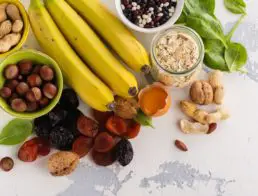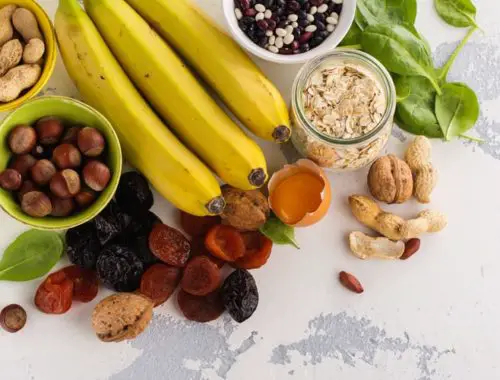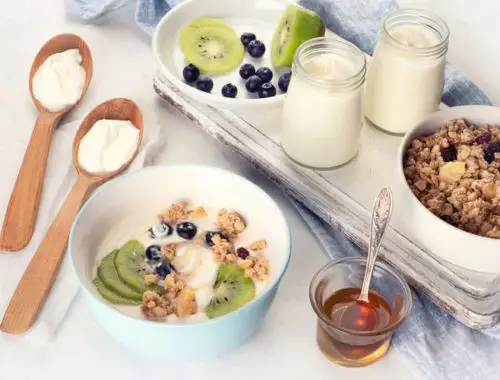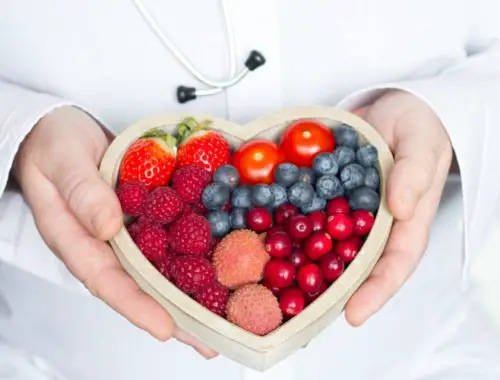Everyone has struggled with water weight at some point, and it’s no fun at all. The human body is made up of around 60% water, and many vital roles and functions depend on this life-giving substance. However, excess water weight is a different story.
Technically referred to as edema, water weight (or water retention), can in rare cases be a sign of a more serious medical condition, but it’s more commonly related to diet, lifestyle and other factors that are well within your power to control. It can also be a natural shift for women according to where you are in your monthly menstrual cycle, and during pregnancy.
First, let’s take a quick look at what water weight actually is, and then some easy and safe ways to reduce it.
What is Water Weight, Exactly?
Water weight refers to the amount of water the body retains. Water always accounts for a large percentage of the human body, but the exact amount shifts depending on various factors. When you retain more water than you should, this is usually reflected on the scale, along with puffiness, bloat and a general feeling of heaviness or discomfort.
This term is frequently used in the world of weight loss, as every gram of glycogen – the stored form of glucose in muscles and fat – is attached to three grams of water. So, when you lose weight quickly (and especially if you lower your carbohydrate or caloric intake considerably) this water is lost as the body uses up its glycogen stores for energy. Once you begin eating normally again, this water weight will naturally return.
Body weight fluctuations are normal throughout the day, and this can usually be attributed to water weight. However, if you struggle with excess water weight on a regular basis, here are eleven ways to get your body back into balance and get rid of water weight:
1. Back off on Alcohol
Interestingly, alcohol acts as a diuretic at first, as it makes you have to pee more often. However, it ultimately leaves you dehydrated, which causes your body to retain more water in an effort to maintain a healthy balance. Be sure to drink water in between alcoholic beverages, and imbibe in as much moderation as possible.
2. Avoid Refined Carbohydrates
Carbohydrates are stored in the liver as glycogen (stored glucose) and every glycogen molecule is attached to three grams of water. This is why cutting carbs dramatically (like with a ketogenic diet) almost always leads to an initial drop of weight, in the form of water weight. High insulin levels due to a diet high in refined carbs and sugars can also contribute to water weight, so avoid carbs that come in the form of white breads
3. Exercise Regularly
As you can imagine, sweating helps you to lose excess water. According to research, the body loses anywhere between 16-64 ounces of water per hour when exercising, depending on the type of activity, clothing you wear and the air temperature.
It’s not only sweating that explains a reduction in water weight via exercise. Interestingly, the body also moves water into your muscles during physical activity, which can reduce the feel and look of visible “puffiness.”
For this reason, some athletes wanting to drop pounds or others simply wanting to reduce water weight will add extra layers of clothing during exercise and enjoy a sauna afterwards. It’s very important to stay hydrated with pure water alongside all of these strategies.
4. Manage Stress
Not only can stress increase lower belly fat and contribute to a whole host of health problems, but it can also be a factor in excess water retention. While normal levels of stress are normal and natural, chronic (long-term) stress that so many people face in our modern world is extremely problematic.
Studies show that this sort of chronic stress leads to elevated levels of the stress hormone cortisol, and this is directly tied to water weight. This likely happens because cortisol increases another hormone called anti-diuretic hormone, which controls the body’s water balance.
Find ways to decrease stress in your life, and there is no one-size-fits-all approach. A few methods to consider include meditation, yoga, meditative movement techniques like Tai Chi, brisk walking or even just ten minutes per day of deep belly breathing.
5. Balance Electrolytes
Electrolytes are electrically charged minerals, and include potassium, magnesium, sodium and others. They are involved in many essential systems and processes in the body, such as muscle contraction, nervous impulses, regulation of pH level and hydration. If the balance of electrolytes in the body becomes too high or too low, this causes changes to the fluid balance and can explain increased water weight.
If you’ve lost electrolytes via exercise or sweating, you can take a high quality electrolyte supplement without added sugars, unsweetened coconut water or simply try adding a pinch of sea salt to your water. On the flip side, eating a diet high in sodium can shift your electrolyte balance in the opposite direction, which an also lead to more water retention.
I love Nuun Hydration Tablets for a natural electrolyte supplement free of added sugars and artificial ingredients.
6. Avoid High-Sodium Processed Foods
Sodium is one of the most common electrolytes in the body, and plays a major role in hydration and potential fluid retention. Studies show that a diet high in salt can directly cause increased water weight, especially when coupled with a sedentary lifestyle and low water intake.
If you eat a diet that primarily consists of real, whole foods and simply add salt while cooking, sodium is unlikely to be a problem. What can quickly become problematic are packaged and processed foods high in sodium. For more details, check out the official CDC recommendations for safe and healthy sodium intake.
7. Get Plenty of Magnesium
Another key electrolyte is magnesium, which is a mineral that plays an important role in upwards of 600 bodily functions. High levels of stress can deplete magnesium stores, along with a diet low in magnesium-rich foods.
The best foods that are naturally high in magnesium are dark leafy green vegetables, such as kale, spinach, collard greens, Swiss chard and others. Avocados, figs, nuts and seeds are also great sources, and you might talk to your doctor about including a magnesium supplement, if necessary.
One of my favorite ways to absorb magnesium and improve sleep is with a calming epsom salt bath at night. Simply ad 3-4 cups of epsom salts and soak for 20-30 minutes. This brand is especially calming, as it combines calming lavender.
8. Stay Well Hydrated
While it might sound contradictory, drinking more water can actually help you get rid of water weight. When you’re dehydrated, the body retains more water in an attempt to stay sufficiently hydrated, leading to all of the unpleasant symptoms of excess water retention. Drinking plenty of water also supports optimal kidney and liver function, which can help to manage water retention, as well.
9. Eat Natural Diuretic Foods
Certain foods and beverages have natural diuretic properties, meaning they increase urine production and help the body get rid of excess water. Foods rich in potassium help to balance sodium, so great options include avocados, dark leafy green vegetables and bananas. Diuretic superstars include dandelion greens, parsley, green tea, black tea, coffee and fennel.
10. Consider Medications
If you’ve taken other steps with diet and lifestyle to reduce water weight with little success, consider if there are any medications you’re taking that might be the culprit. Always discuss any medication changes with your doctor, but certain meds that are known to contribute to water retention include NSAIDs (non-steroidal anti-inflammatory drugs, like ibuprofen), certain blood pressure lowering medications, oral steroids and oral contraceptives, among others.
11. Support the Kidneys
While this is rarely the case, extreme edema over time can be a sign of kidney disease, so it’s important to preventative and measures to support the kidneys. Measure to do so include getting adequate sleep, managing stress, regularly eating dandelion greens (or speaking with your practitioner about a dandelion supplement), drinking plenty of water and avoiding refined or processed carbohydrates.
Water weight can be a serious annoyance, and even though it’s probably not due to anything serious, it’s an important sign from your body to make some changes. Follow these eleven steps to get rid of excess water weight, and talk to your doctor if you suspect an underlying medical problem.









